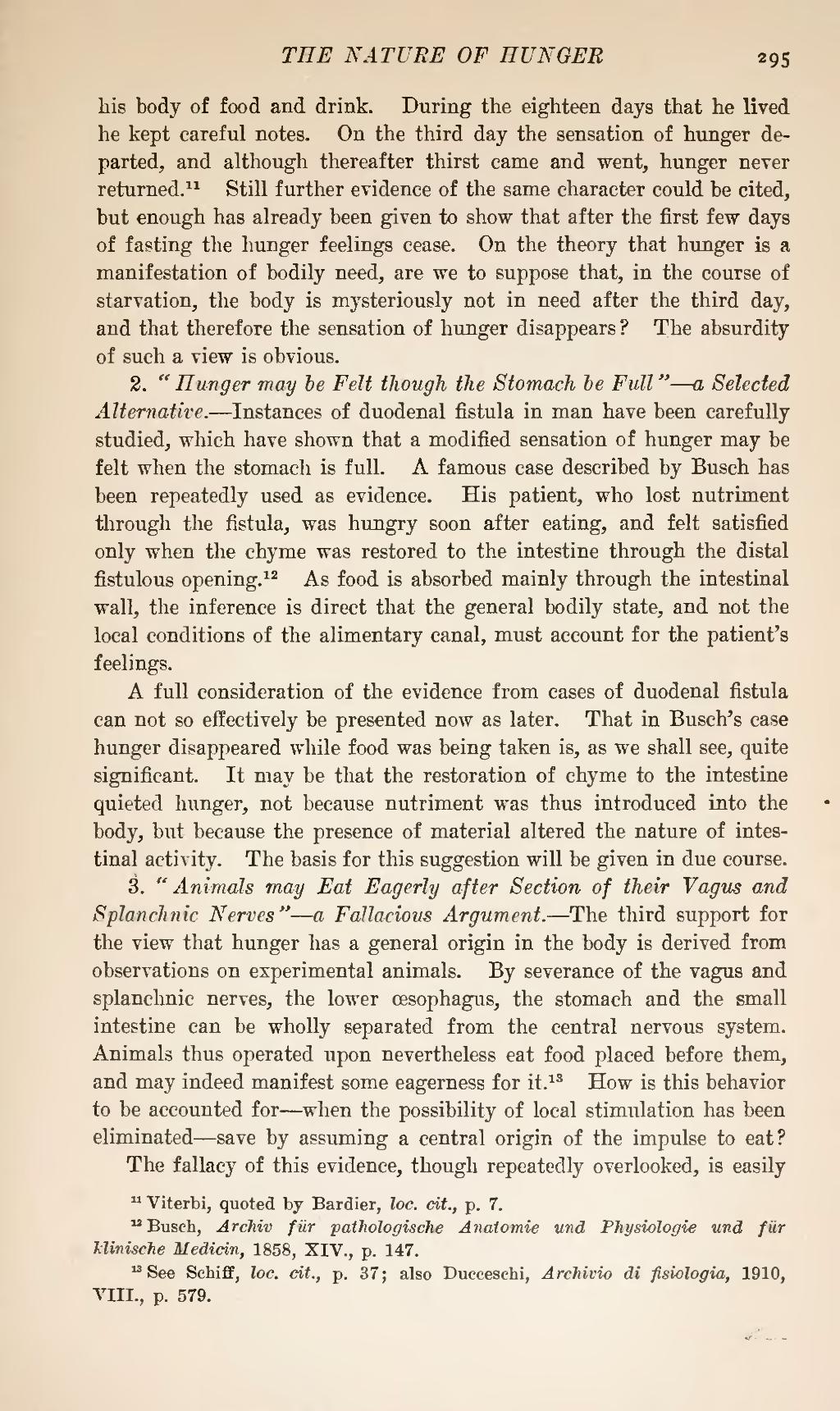his body of food and drink. During the eighteen days that he lived he kept careful notes. On the third day the sensation of hunger departed, and although thereafter thirst came and went, hunger never returned.[1] Still further evidence of the same character could be cited, but enough has already been given to show that after the first few days of fasting the hunger feelings cease. On the theory that hunger is a manifestation of bodily need, are we to suppose that, in the course of starvation, the body is mysteriously not in need after the third day, and that therefore the sensation of hunger disappears? The absurdity of such a view is obvious.
2. "Hunger may be Felt though the Stomach be Full"—a Selected Alternative.—Instances of duodenal fistula in man have been carefully studied, which have shown that a modified sensation of hunger may be felt when the stomach is full. A famous case described by Busch has been repeatedly used as evidence. His patient, who lost nutriment through the fistula, was hungry soon after eating, and felt satisfied only when the chyme was restored to the intestine through the distal fistulous opening.[2] As food is absorbed mainly through the intestinal wall, the inference is direct that the general bodily state, and not the local conditions of the alimentary canal, must account for the patient's feelings.
A full consideration of the evidence from cases of duodenal fistula can not so effectively be presented now as later. That in Busch' s case hunger disappeared while food was being taken is, as we shall see, quite significant. It may be that the restoration of chyme to the intestine quieted hunger, not because nutriment was thus introduced into the body, but because the presence of material altered the nature of intestinal activity. The basis for this suggestion will be given in due course.
3. "Animals may Eat Eagerly after Section of their Vagus and Splanchnic Nerves"—a Fallacious Argument.—The third support for the view that hunger has a general origin in the body is derived from observations on experimental animals. By severance of the vagus and splanchnic nerves, the lower œsophagus, the stomach and the small intestine can be wholly separated from the central nervous system. Animals thus operated upon nevertheless eat food placed before them, and may indeed manifest some eagerness for it.[3] How is this behavior to be accounted for—when the possibility of local stimulation has been eliminated—save by assuming a central origin of the impulse to eat?
The fallacy of this evidence, though repeatedly overlooked, is easily

